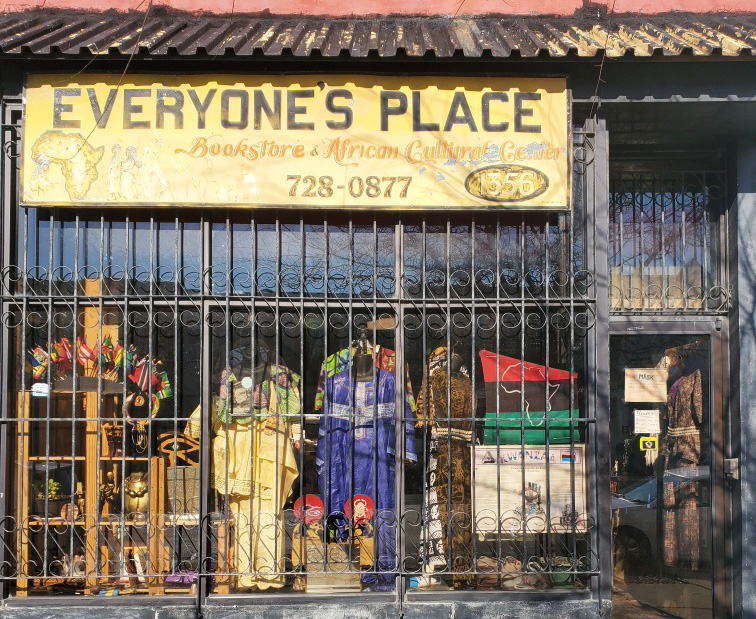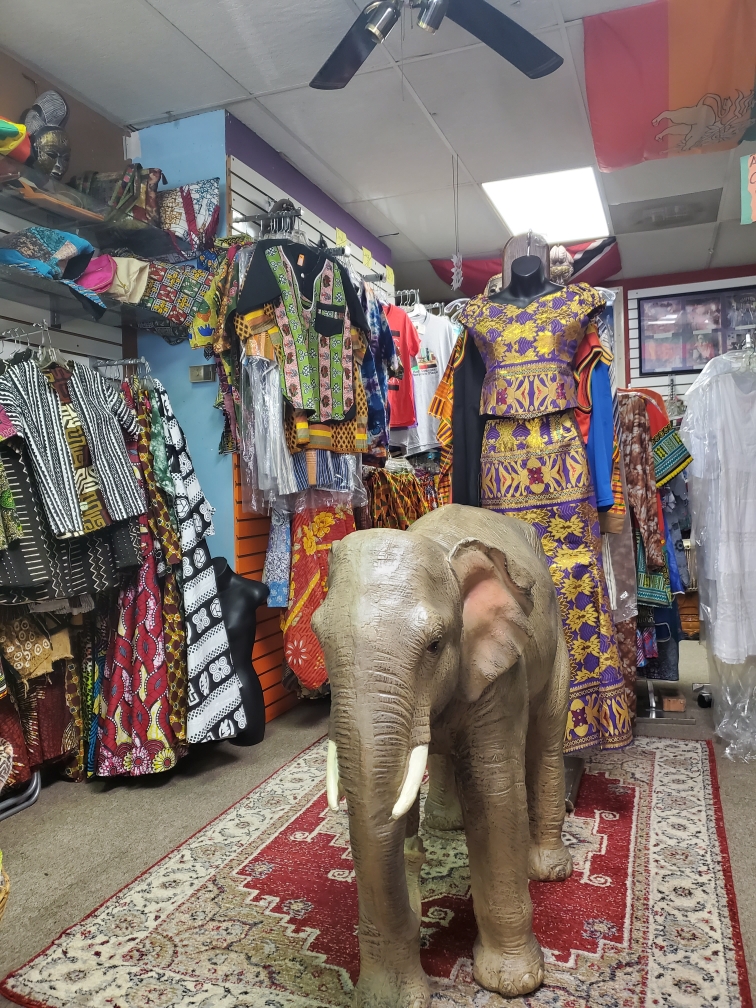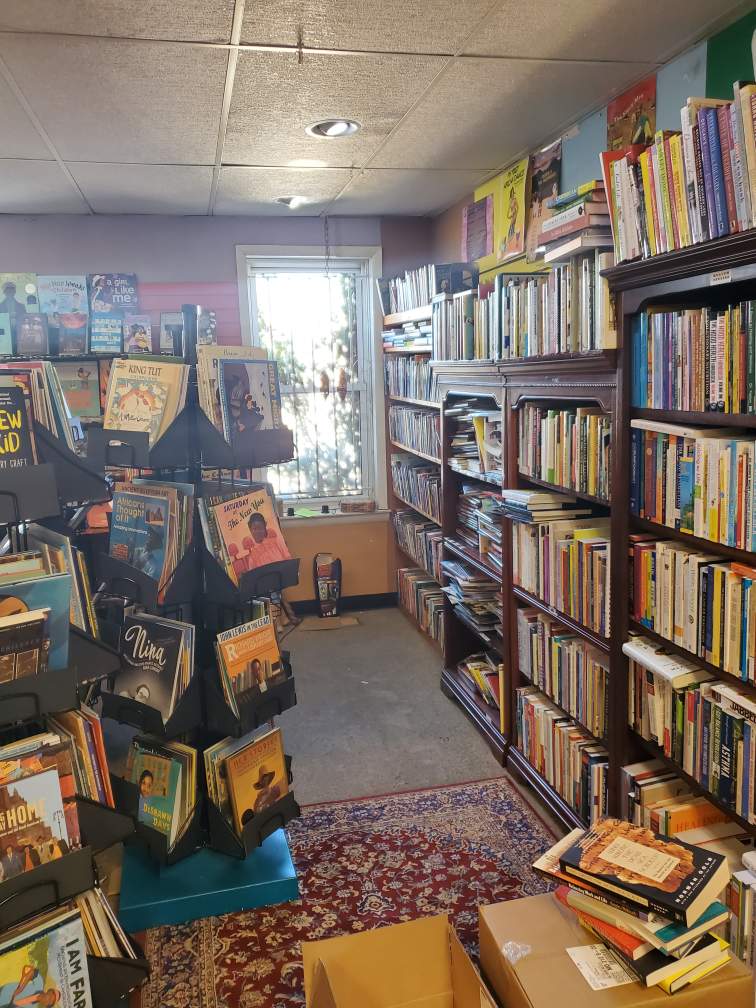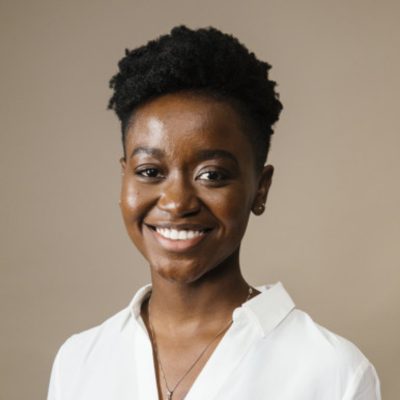
Baltimore native Olakekan Kamau-Nataki has spent her whole life surrounded by books.
Every summer, she and her brother would work part-time at their parents’ bookstore, Everyone’s Place African Culture Center, on North Avenue. Kamau-Nataki, 30, says loyal customers even remember her running around the shop as a toddler.
“I probably knew the store before I knew myself,” she says.
Not only has Everyone’s Place shaped a large part of Kamau-Nataki’s identity, it’s also played a role in shaping the communities that surround it. In the mid-’80s, Kamau-Nataki’s parents, owners Tabia and Nati, were offered the store—which originally sat a few blocks away from its current location in Druid Heights—by its previous owner. From their very first day in business, the University of Maryland, Baltimore County graduates knew they wanted Everyone’s Place to be heavily involved in the neighborhood it inhabited.
Throughout the years, it’s become a beloved browsing spot, a venue for events, and a place for local artists to share their merchandise. The African Culture Center side of the business sells skincare products, clothing, incense, and oils. Before the pandemic, the shop would also host frequent guest lecturers and performers.
“I remember when I was younger there were authors that would come,” Kamau-Nataki says, “and my mom used to do headwrap classes.”
That same fortified community relationship is what is ultimately getting the bookstore through one of the most difficult eras small businesses have faced in decades.
The store’s mission—to provide customers with a window into a culture through the African diaspora—resonated with the community even more when Black Lives Matter protests swept the country last summer. Kamau-Nataki says the bookstore went from the slow, leisurely days of lockdown to a frenzied hustle as customers sought books on anti-racism and expressed a heightened interest in supporting Black-owned businesses.
“People were calling for books that probably years before we would maybe sell four copies of,” Kamau-Nataki says.
We caught up with Kamau-Nataki to learn more about how the community has kept the Black-owned culture center afloat:
Tell us a bit about your parents. What inspired them to open the store?
My mother has always been a business owner. When she went to university, she carried that with her. She would have a table at the University of Maryland, Baltimore County (UMBC) and sell incense and small things. My father also went to UMBC, that’s how they met. So when they finished school, they carried that on. They were a big part of the African Studies department there. They started out with a table at festivals just selling all kinds of things. They would be at reggae concerts selling mandalas, shirts, sunglasses, even sweet potatoes.
Everyone’s Place has been around for more than three decades. What do you think has contributed to its longevity?
It would have to be the support of the community first and foremost. People have seen the effort that my parents have put in and the way that they have continued to support the community. In turn, the community continues to support them. My parents have maintained what their goal was from the start. Everything is cyclical. I remember the intensity of people coming in here when I was younger, and as the community waned a little bit, you still had people coming—you still had the support. Now we’re back at that kind of cycle again where people are very heavy into learning about who they are, learning about their ancestors, and looking for their own growth. From the beginning, people have always been here to support.
The shop is not only a bookstore, it’s also an African Culture Center. What other cultural items does the store showcase?
We have clothing, fabric, statues, skin products, oils, and a wide array of things from within the African diaspora. I think for my parents, and for myself and my brother, Africa is more than just a continent because our people have been spread everywhere. Wherever we are we’ve had to maintain what we have of our culture, but also create our own culture. It’s part of reflecting and acknowledging the culture that we may not 100 percent know, but also acknowledging the culture that we had to create.


There are only a number of Black-owned bookstores across the country. Why do you think there are so few?
One easy answer, which covers a lot of small stores in general is, you know, Amazon. They’re getting books that a lot of other people can’t get, so it’s making it harder for people to sell things in their community. Despite that, people still come here and buy regardless. But I think we’re in a moment now where the number of Black bookstores is actually increasing. There are many that have closed but, even in this past year, there are several that have opened.
Last summer, we saw hundreds of thousands of people protesting for Black lives and against police brutality. Due to this, there was a national uptick in the sale of books about race and by Black authors. Did you see the effects of that at Everyone’s Place?
It was just an overnight shift. No one was prepared for that. It was a little bit of a shock. It was good to see the book lists that people were putting out with a lot of authors who were doing the work before, and for them to get that recognition. It was also good for people to actually be reading these books and to actually acknowledge things that Black people already know innately, for people to be able to read it where someone has put their feelings into words, put their experience into words, and to express what it is that they’re experiencing.
Why is it so important to see Black-owned bookstores like Everyone’s Place thrive in Baltimore?
Bookstores in general, but specifically Black-owned bookstores, have historically been a place where people have shared their ideas, shared their beliefs, and organized. It’s been the foundation for a lot of our community. The other day I was putting away a book that talked about literary societies and their importance in Black communities and the roles that they played. You get your information from books, but sharing those ideas with other people and the development and growth that it allows within our community is the importance of Black bookstores. We’re able to get books that are directed to us, which we might not be able to find most other places. It gives us an ability to see ourselves in a way that we wouldn’t.
